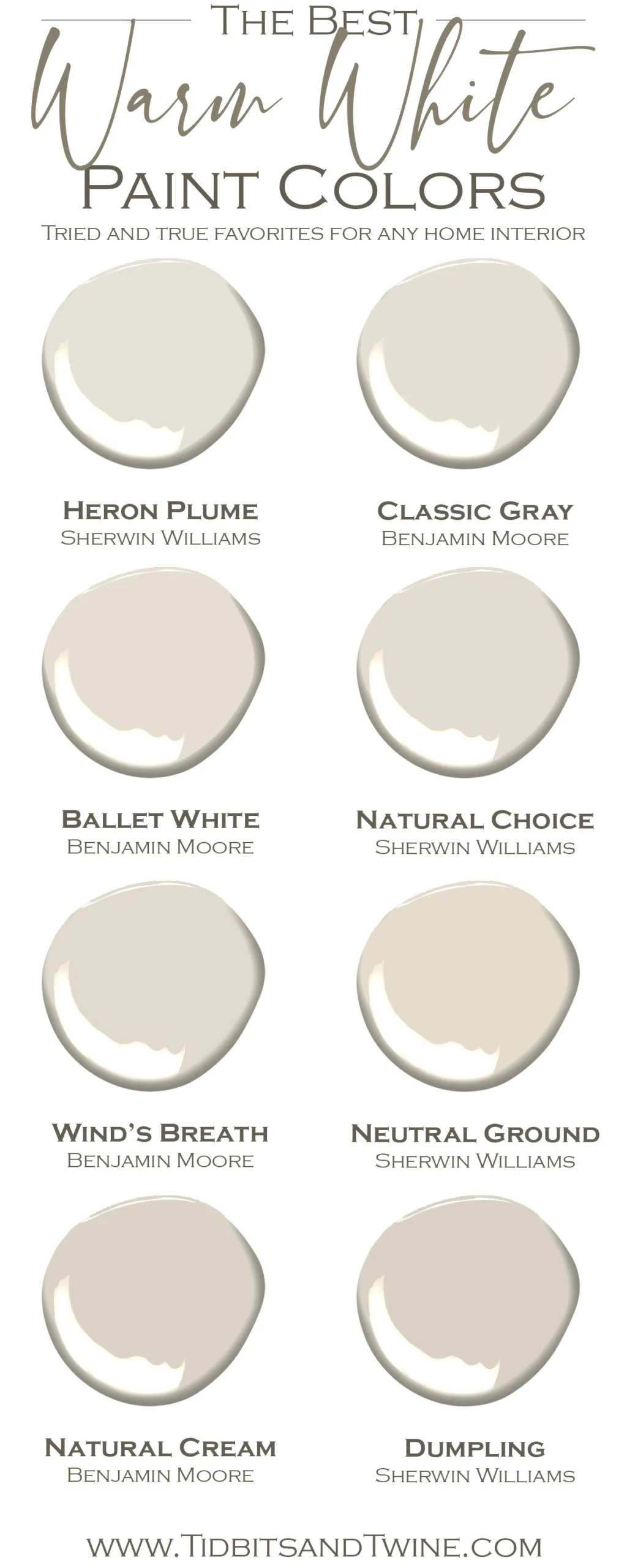
The quest for the perfect white paint can feel like a never-ending scroll through an infinite feed of subtly different shades. It’s a digital rabbit hole, a paradox of choice that leaves you more confused than enlightened. But in the realm of premium paints, Benjamin Moore’s collection of white hues stands out, offering a curated palette of nuanced shades, each with its own distinct personality.
Benjamin Moore's top whites are more than just simple pigmentation; they're carefully crafted formulas, balancing undertones and light reflectivity to create specific moods and enhance architectural details. From the crisp coolness of Chantilly Lace to the warm embrace of Simply White, these paints have garnered a loyal following among interior designers and homeowners alike.
Why the obsession with the perfect white? White is the ultimate neutral, a blank canvas that allows other design elements to shine. It can make a small room feel expansive, amplify natural light, and provide a backdrop for bold pops of color or subtle textural variations. However, choosing the wrong white can lead to a sterile, uninviting space or clash with existing décor.
The Benjamin Moore brand, established in 1883, has a rich history of paint innovation. Their dedication to quality and color expertise is evident in their highly-pigmented formulas and extensive range of hues. The brand's top white paint colors have become iconic, often gracing the walls of magazine-worthy homes and setting trends in interior design.
One of the primary challenges with selecting a white paint is understanding undertones. While a paint chip may appear purely white in isolation, it can reveal subtle hints of other colors—yellow, pink, blue, or gray—when applied to a large surface and interacts with the surrounding light. This is where Benjamin Moore's curated selection shines, offering a spectrum of whites with clearly defined undertones, allowing you to select the perfect shade to complement your existing décor and lighting conditions.
Understanding undertones is key to successfully using Benjamin Moore’s best white paint colors. For instance, Simply White, a warm white with subtle yellow undertones, creates a cozy and inviting atmosphere. Chantilly Lace, on the other hand, offers a crisp, clean look with its cool undertones, making it ideal for modern spaces. Decorator's White, with its slight gray undertone, offers a versatile backdrop for a range of design styles.
Three key benefits of using premium Benjamin Moore white paints are their exceptional coverage, durability, and richness of color. Their high-quality pigments ensure fewer coats are needed for a flawless finish, saving time and money. The paint's durable formula resists fading and wear, ensuring your walls maintain their pristine appearance for years to come. Finally, the depth and complexity of their white hues create a sophisticated ambiance that elevates any space.
Creating an action plan for selecting your Benjamin Moore white starts with assessing your existing décor, lighting, and desired ambiance. Consider the colors of your furniture, flooring, and artwork. Evaluate the amount and direction of natural light in the room. Then, gather paint samples of your top contenders and test them in your space, observing how they appear at different times of the day.
Advantages and Disadvantages of Popular Benjamin Moore Whites
| Paint Color | Advantages | Disadvantages |
|---|---|---|
| Simply White | Warm, inviting, versatile | May appear too yellow in north-facing rooms |
| Chantilly Lace | Crisp, clean, modern | Can feel sterile in rooms lacking natural light |
| Decorator's White | Versatile, balanced, slightly cool | May appear dull in rooms with limited light |
Best Practices: 1. Test paint samples in your space. 2. Consider the lighting. 3. Prime your walls properly. 4. Use high-quality brushes and rollers. 5. Allow adequate drying time between coats.
Examples: 1. Simply White in a kitchen with natural wood cabinets. 2. Chantilly Lace in a modern living room with minimalist décor. 3. Decorator's White in a bedroom with soft furnishings. 4. White Dove in a hallway with ample natural light. 5. Cloud White in a bathroom with marble tile.
Challenges and Solutions: 1. Undertones clashing with décor - Solution: Test samples. 2. Paint appearing different than expected - Solution: Consider lighting. 3. Uneven coverage - Solution: Prime walls. 4. Visible brushstrokes - Solution: Use quality tools. 5. Paint drying too quickly - Solution: Add extender.
FAQs: 1. What is the most popular Benjamin Moore white? 2. What are the undertones of Simply White? 3. Is Chantilly Lace a warm or cool white? 4. Which white is best for trim? 5. How many coats of Benjamin Moore white paint are needed? 6. What is the difference between Simply White and White Dove? 7. What sheen is recommended for walls? 8. How do I choose the right white paint?
Tips and Tricks: Use painter's tape for clean lines. Stir paint thoroughly before application. Apply paint in thin, even coats. Allow adequate drying time between coats. Clean brushes and rollers immediately after use.
In conclusion, the journey to discovering the perfect white paint for your space may seem daunting, but with Benjamin Moore’s collection of premier whites, the process becomes a curated exploration of nuance and light. Understanding the subtleties of undertones, the interplay of light, and the specific qualities of each shade empowers you to make informed decisions that transform your home. From the classic warmth of Simply White to the crisp modernity of Chantilly Lace, Benjamin Moore offers a white for every aesthetic and environment. Investing in high-quality paint is an investment in the long-term beauty and value of your home. By carefully considering your individual needs and following best practices, you can achieve a flawless finish that elevates your design and brings your vision to life. Take the time to explore the world of Benjamin Moore whites and unlock the transformative power of the perfect white canvas.
Navigating energy interruptions maryland gas service
Blue ash red white and blue ash a deep dive
Blown transformer repair time a deep dive













